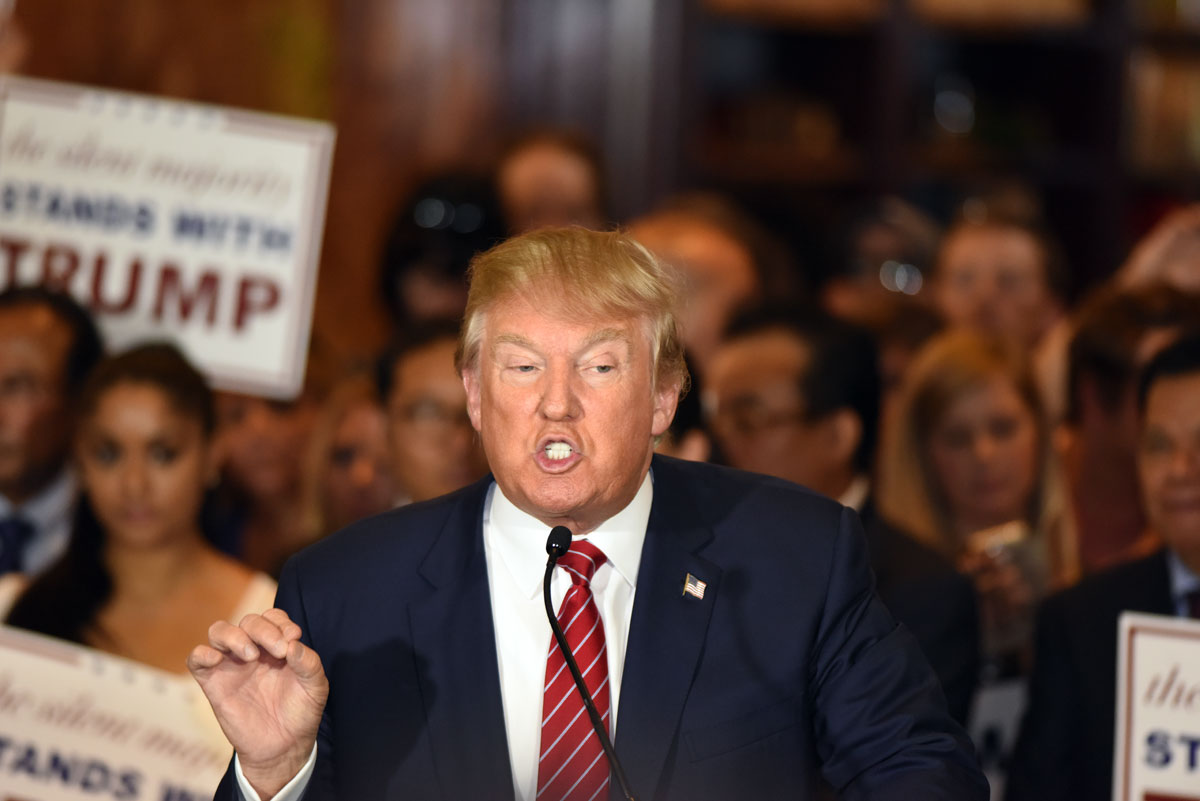I USE H-1B VISAS BUT IT SHOULD END
File photo of Donald Trump during an election meet.
Republican presidential front- runner Donald Trump for the first time acknowledged, Mar. 11, that he uses the much sought after H-1B visas at his own businesses but sought to end the program which he claimed was “very unfair” to American workers as it took away their jobs, writes Lalit K. Jha. (#Siliconeer, @Siliconeer, #DonaldTrump, #India, #2016USPresidentialRace, @DonaldTrump, #H1BVisa
The last Republican presidential debate in Miami began with all the four White House aspirants slamming the H-1B visa system – used to employ highly-skilled foreign workers and popular among Indian techies, with Florida Senator Marco Rubio even naming Tata and India as part of his anti-H-1B rhetoric.
“I know the H-1B very well. And it’s something that I frankly use and I shouldn’t be allowed to use it. We shouldn’t have it. Very, very bad for workers. It’s very important to say, well, I’m a businessman and I have to do what I have to do,” Trump said while responding to a question on foreign workers, in particular H-1B visas.
“When it’s sitting there waiting for you, but it’s very bad. It’s very bad for business, it’s very bad for our workers and it’s unfair for our workers. We should end it,” he said.
The real estate tycoon’s properties are spread over in Virginia, Illinois, Florida, New Jersey, Nevada, New York, California, Connecticut and Hawaii in the U.S., and in Canada, Turkey, Panama, South Korea, the Philippines, India and Uruguay.
IT professionals from India and major Indian IT companies are major beneficiary of H-1B, a non-immigrant visa in the U.S. which allows U.S. employers to temporarily employ foreign workers in speciality occupations.
Rubio said it is illegal under the H-1B program to use it to replace American workers.
“Under that program, you have to prove not only that you’re not replacing Americans, but that you’ve tried to hire Americans. If a company is caught abusing that process, they should never be allowed to use it again,” he said.
The second problem with the current structure of the program people perhaps do not understand is a lot of these companies are not directly hiring employees from abroad, he pointed out.
“They are hiring a consulting company like Tata, for example, out of India. That company then hoards up all of these visas. They hire workers. Disney or some other company hires this company,” Rubio said.
“What they’re basically doing is they are insourcing and outsourcing. They are bringing in workers from abroad that are not direct employees of a Disney or someone else, they’re employees of this consulting business,” he said.
“What I argue is that no consulting business such as that should be allowed to hoard up all of these visas, that the visas should only be available for companies to use to directly hire workers and that we should be stricter in how he enforce it,” he said.
“It is illegal now, it is a violation of the law now to use that program to replace Americans. If a company is caught doing that, whether it be Disney or anyone else, they should be barred from using the program in the future,” Rubio said.


